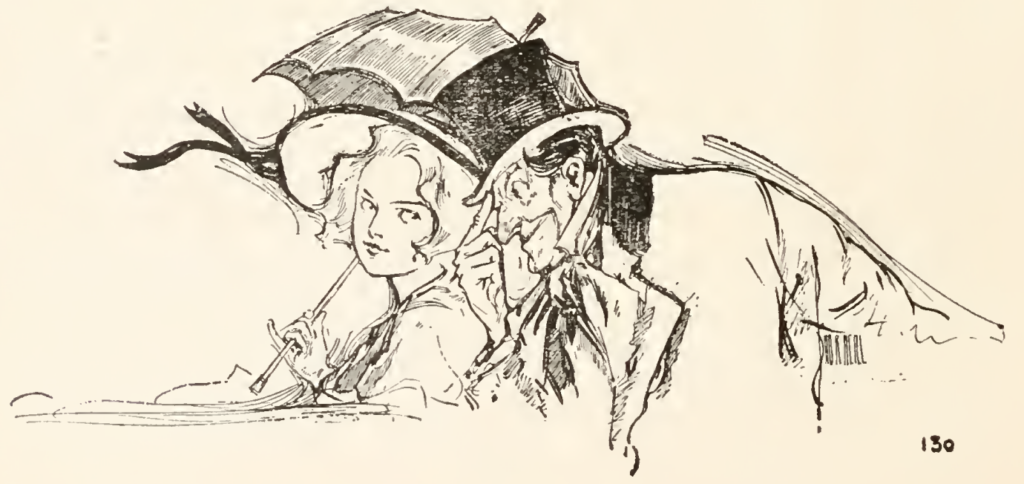This context creates a different meaning to these lines from The Marvelous Land of Oz: “Mombi was not exactly a Witch, because the Good Witch who ruled that part of the Land of Oz had forbidden any other Witch to exist in her dominions. So Tip’s guardian, however much she might aspire to working magic, realized it was unlawful to be more than a Sorceress, or at most a Wizardess” (7–8). This does not stop Baum from frequently identifying Mombi as a witch later on. If this backstory is at all true, then Mombi is not a lowly woman “aspiring” to something greater but, rather, is a former tyrant who wishes she could regain her glory. You’d think that would have come up at some point! If Mombi had been their former dictator, no wonder the Gillikans don’t like her! And why is everyone gentler to the Wicked Witch of the North than to the others?
Baum must have decided he did not want the Wizard to be a bad guy, even though that would create a more interesting dynamic and leave room for (gasp!) characters to grow or learn. So Baum retroactively changed the whole story. However, it raises the possibility that this is a Rashomon situation, each character providing a version of events more flattering to themself. The Wizard does not want to own up to killing or at least overthrowing Pastoria, and Mombi, to lessen her punishment, wants to pin the full blame on the Wizard rather than admit her direct involvement in overthrowing Pastoria. If the Wizard had somehow helped the Wicked Witches eliminate Pastoria, that may also explain why they let him have the Emerald City, rather than their being gullible. But the Wizard might have had some kindness in him and, unwilling to kill the baby Ozma, secreted her away to Mombi in return for some special favor he did not do the other witches. The Wizard, an inveterate liar, invented the story about building the Emerald City (especially given that the gathering of the emeralds would have upset the Nome King, who would have killed the Wizard in about ten seconds). Perhaps the city was already there, and the Wizard simply had it bedazzled and/or introduced the policy of wearing green spectacles to trick everyone into thinking it was full of more emerald than it really was, in some sense creating its present emerald status. This timeline would also mean that Ozma’s age in The Marvelous Land of Oz is just about how many years the Wizard ruled Oz.

Yet again, I find myself imagining a tale of political intrigue and complicated character psychology in fairy land, a tale more interesting than the good vs. evil whimsy featuring mostly cardboard cutout characters that, alas, Baum actually wrote. Dorothy and the Wizard in Oz is definitely a bit disappointing, a chain of disconnected episodes less focused and satisfying than the previous novels. Whether they prove boring or not, though, I intend to read the first seven Oz novels. You can find my post about the fifth Oz novel, The Road to Oz, here.